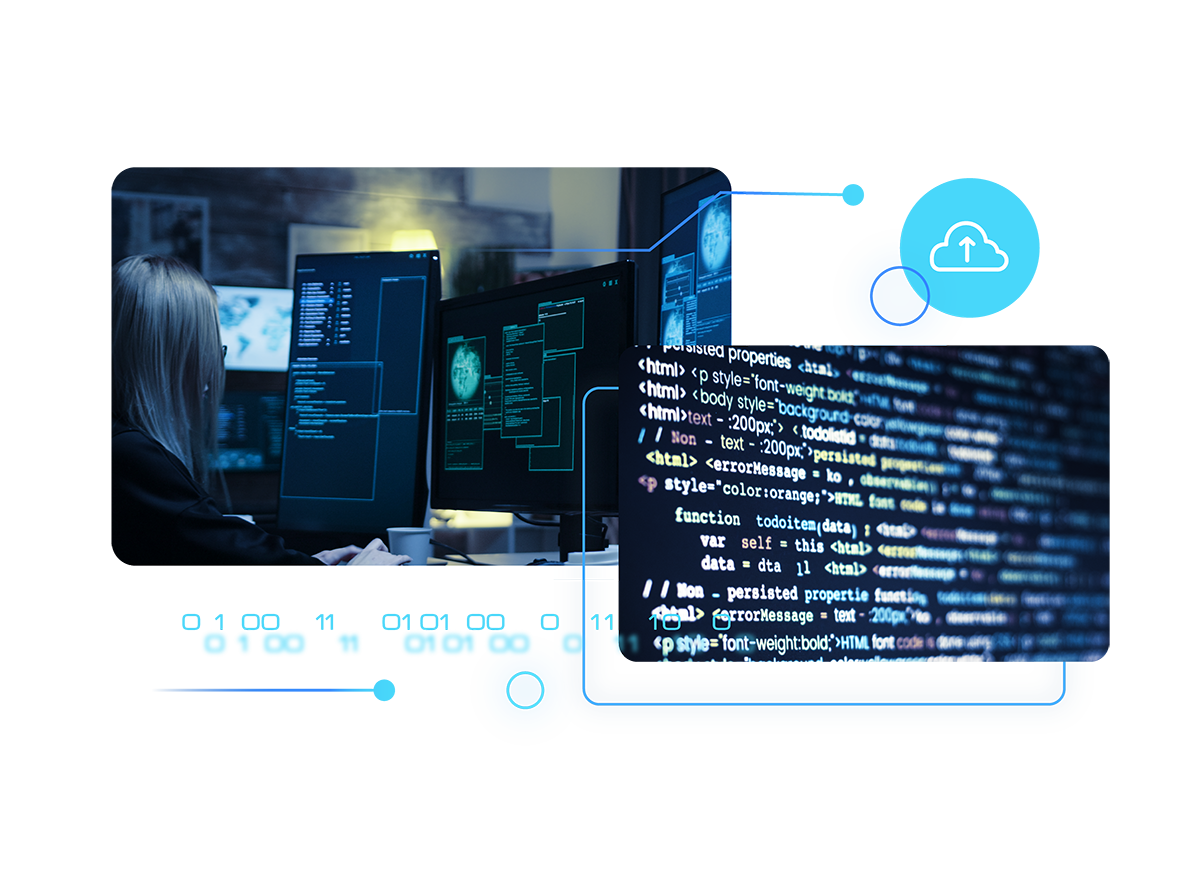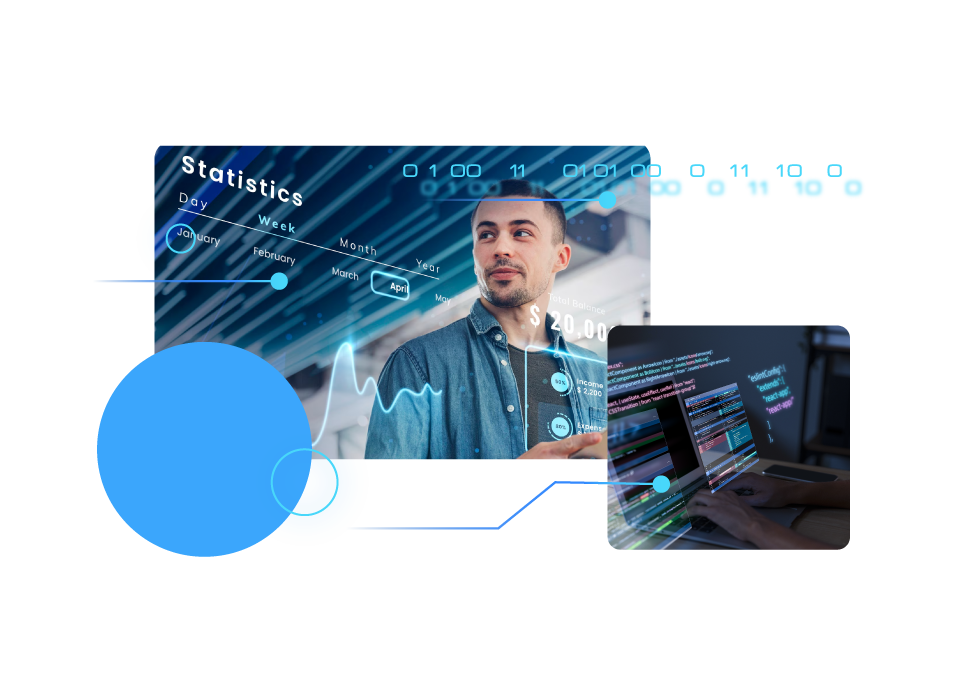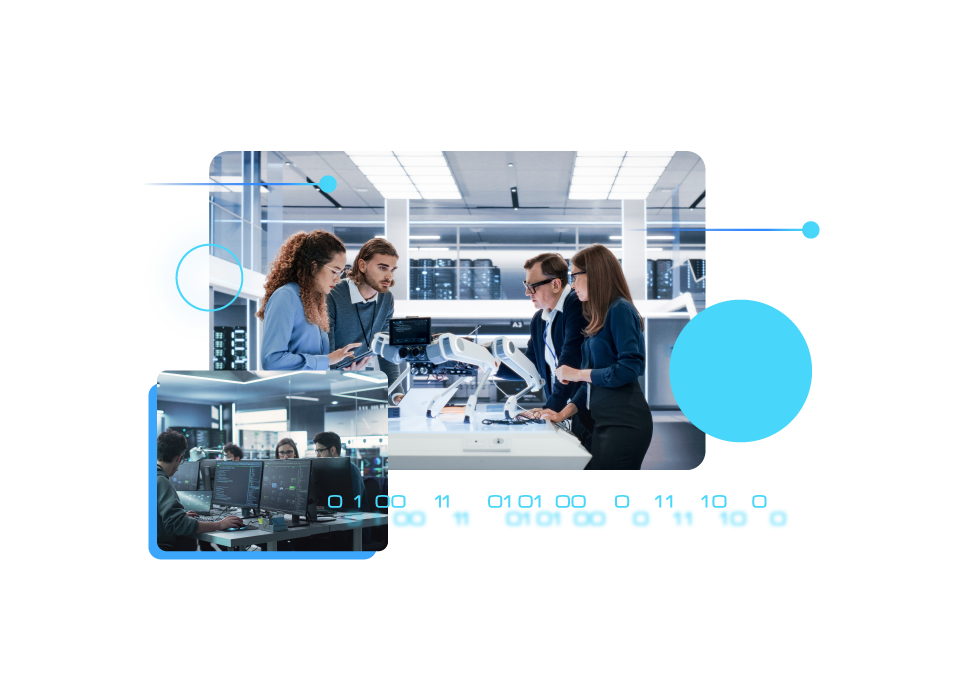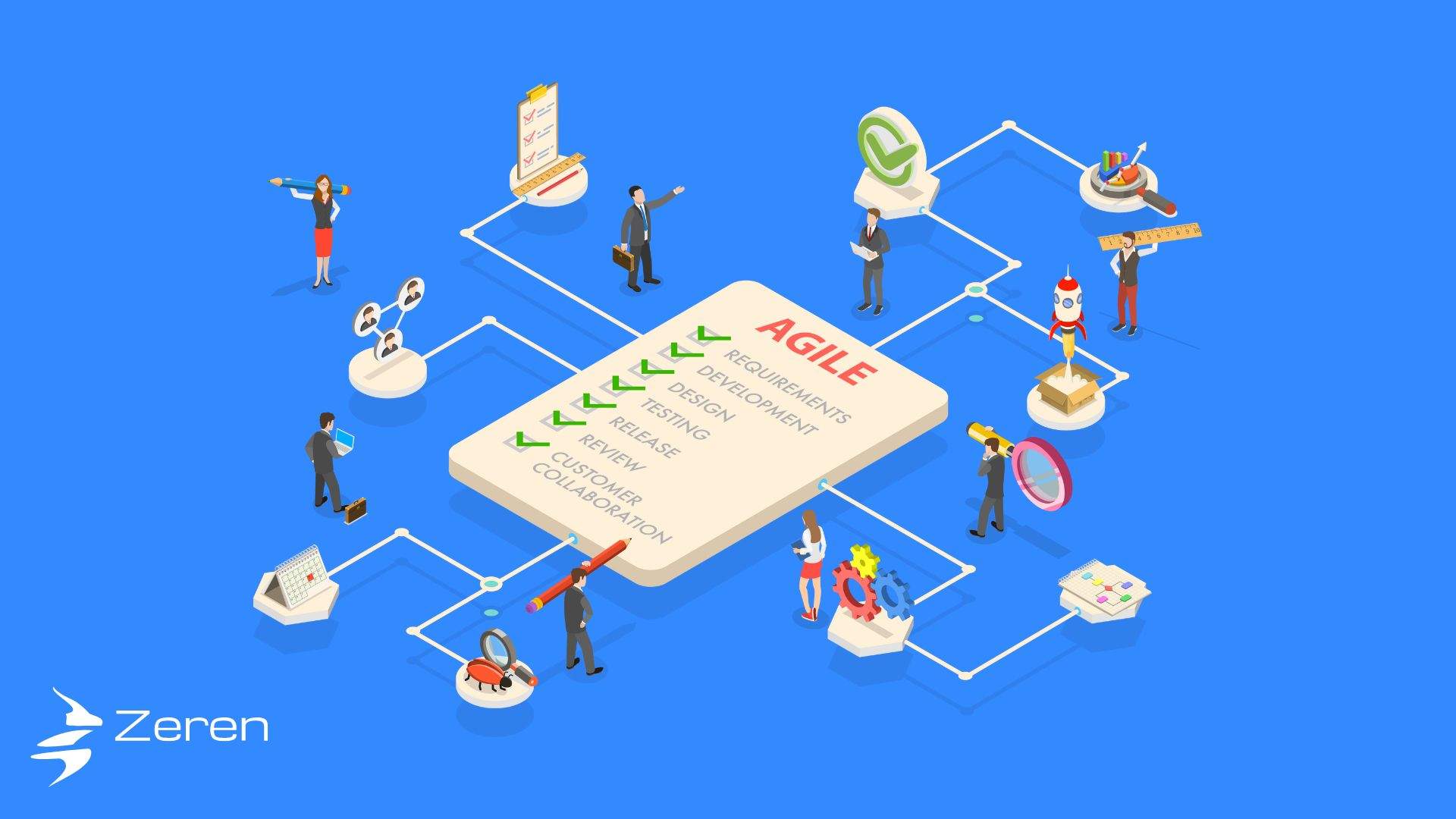Empowering your vision: Seamless IT Project Management for tomorrow's success!
Navigate tomorrow's challenges with Zeren's IT Project Management. We transform your vision into success, steering projects with unmatched expertise and a forward-thinking approach. Ready for seamless execution?
Connect NowBy partnering with us, you benefit from
ENHANCED EFFICIENCY
Our methodologies are designed to optimize workflow and resource allocation, ensuring timely and cost-effective project completion.
CUSTOMIZED SOLUTIONS
Understanding that no two projects are the same, we provide bespoke strategies that align with your unique project requirements.
ADVANCED TOOLS AND TECHNIQUES
Leverage the latest in project management software and practices for superior project control and visibility.
EXPERT TEAMS OF PROFESSIONALS
Gain access to our pool of skilled project managers and IT specialists, bringing a wealth of experience and industry insights to ensure the highest standards of project execution and innovation.

STREAMLINED IT PROJECT MASTERY
OUR FOUR-PHASE APPROACH
We excel in IT project management — a crucial process of meticulously planning, managing, and developing IT projects. Our services span a variety of sectors, including software development, information security, hardware, networking, databases, and mobile app development. Our approach combines the technical prowess of IT developers with the strategic oversight of project managers, ensuring every project is expertly guided from conception to completion. We prioritize clear communication, staying on track and within budget, to seamlessly bring your IT visions to life.
Learn more about us!
Each of these segments is integral to the success of your IT projects!
Planning
- PROJECT SCOPE DEFINITION: Establish clear objectives and deliverables.
- RESOURCE ALLOCATION: Optimize the use of personnel, budget, and technology.
- RISK ASSESSMENT: Identify potential risks and prepare mitigation strategies.
- TIMELINE DEVELOPMENT: Create a realistic and achievable project timeline.
Execution
- TASK MANAGEMENT: Implement project plans through organized task distribution.
- TEAM COLLABORATION: Foster effective communication and collaboration among team members.
- QUALITY ASSURANCE: Maintain high standards throughout the project lifecycle.
- STAKEHOLDER ENGAGEMENT: Ensure continuous alignment with stakeholder expectations.
Monitoring
- PROGRESS TRACKING: Utilize tools to monitor project milestones and performance.
- BUDGET MANAGEMENT: Keep a close eye on budget expenditure and forecasts.
- ISSUE RESOLUTION: Swiftly address and resolve any project hurdles.
- ADAPTATION AND FLEXIBILITY: Adjust strategies as needed to respond to changing project dynamics.
Closing
- FINAL DELIVERABLE REVIEW: Ensure all objectives have been met to the highest standard.
- CLIENT HANDOVER: Seamlessly transition the completed project to the client.
- PROJECT DOCUMENTATION: Provide comprehensive documentation for future reference.
- POST-PROJECT ANALYSIS: Evaluate project success and extract key learnings for future initiatives.
CHOOSE YOUR PATH: NAVIGATE THE CORE PROJECT MANAGEMENT METHODOLOGIES
WATERFALL (linear)
Waterfall methodology is synonymous with a linear, phase-by-phase approach, ideal for projects with well-defined scopes and requirements. The integration of the Project Management Body of Knowledge (PMBOK) enhances this traditional model, introducing best practices that underscore meticulous planning and thorough documentation. This blend offers a refined framework, ensuring precision and predictability in complex projects.

Advantages
- Predictability: Offers a clear, sequential structure, making it easy to understand and manage.
- Structured documentation: Each phase requires comprehensive documentation, leading to well-documented processes and results.
- Defined milestones: Clear milestones help in tracking progress and coordinating complex projects.
Best for:
- Projects with clearly defined requirements and no expected changes.
- Situations where a high degree of certainty about the final product is necessary.
- Industries and projects where comprehensive documentation is crucial, such as construction and manufacturing.
Lean
Lean methodology focuses on maximizing value while minimizing waste, streamlining processes to enhance efficiency in project management. It emphasizes delivering value to the end-user through continuous improvement and removing non-essential activities. The integration of Kanban, with its visual task management system, complements Lean by providing real-time visibility of work progress and enabling better workflow management. This combination ensures a highly responsive and flexible approach to handling a wide array of projects.
Advantages
Efficiency and waste reduction
Lean focuses on eliminating non-value-adding activities, streamlining processes, and thereby increasing efficiency.
Customer-centric approach
Prioritizes customer value, ensuring that every aspect of the project aligns with customer needs and expectations.
Flexibility and responsiveness
Adapts quickly to changes and feedback, allowing for continuous improvement in the project lifecycle.
Enhanced collaboration
Promotes teamwork and clear communication, leading to better problem-solving and innovation.
Increased transparency:
Through practices like Kanban, Lean provides a visual workflow, enabling clear tracking of progress and bottlenecks.
Best for
Projects aimed at process improvement
Ideal for projects focused on enhancing operational efficiency and process optimization.
Customer-driven projects
Suitable for projects where delivering customer value is the primary objective.
Dynamic and changing environments
Works well in scenarios where project requirements are expected to evolve over time.
Teams seeking continuous improvement
Beneficial for teams that are focused on iterative development and ongoing enhancements.
Organizations Focused on Lean Principles
Especially effective in organizations that have embraced lean principles across their operations.
Agile (iterative)
Agile project management represents a paradigm shift from the traditional waterfall model, embracing the agility and efficiency found in lean practices. It is characterized by its iterative nature and collaborative approach, prioritizing the delivery of high-quality products that meet customer needs. Agile serves as a foundational set of principles guiding various methodologies. These methodologies emerged from a growing demand for flexible and responsive project management strategies.
Agile excels in its ability to adapt to changing project requirements, making it highly responsive to evolving business and market needs.

Emphasizes regular feedback and customer involvement, ensuring the end product aligns closely with customer expectations.

Facilitates better team interaction and stakeholder engagement, fostering a collaborative working environment.

Iterative cycles and continuous delivery allow for quicker release of functional segments of the product, reducing time to market.

Regular reviews and adaptations lead to continual improvement in quality and better alignment with user requirements


BLENDING BEST PRACTICES
MASTERING HYBRID PROJECT MANAGEMENT METHODOLOGIES
Hybrid methodologies merge the structured planning of traditional approaches like Waterfall with the adaptability of Agile practices. Ideal for projects where both stability and flexibility are key, these methodologies begin with a linear approach for solid planning and risk assessment, then transition to Agile’s iterative cycles for development and execution. This approach suits complex projects needing both thorough upfront planning and the ability to adapt to changing requirements, making it perfect for organizations evolving from traditional to Agile models.
Dynamic Systems Development Method (DSDM) is an Agile framework that prioritizes rapid, controlled project delivery. Known for stakeholder collaboration and flexible planning, it suits complex projects needing quick adaptation to change. Emphasizing on-time delivery within budget and quality specifications, DSDM is perfect for fast-paced, collaborative environments.
Ready to revolutionize your project management approach?
Explore our Insights section now and unlock a treasure trove of knowledge and tools. Elevate your projects, exceed your goals, and lead with confidence – your journey to project management excellence begins here!

Agile Development: Revolutionizing Software Production
Software development is a complex and dynamic process that requires constant adaptation and innovation. Traditional software development models, such as the waterfall...

Embracing Agile: A Technical Product Manager Perspective
In the fast-paced and ever-evolving world of software development, the Agile work methodology has emerged as a game-changer for companies aiming to...

Kanban versus Scrum: A Comprehensive Guide to Agile Development
In the world of software development, two methodologies often stand out: Kanban and Scrum. Both are popular Agile frameworks, but they have...

12 Ways to Reduce Cloud Costs
Got sticker shock from that last cloud bill? Don’t worry, you’re definitely not alone. The flexibility and scalability of the cloud are...
OTHER PROJECT MANAGEMENT METHODOLOGIES
- Critical Path Method (CPM)
- Critical Chain Project Management (CCPM)
- Rapid Action Development
- PRINCE2
- Rational Unified Process
- PRiSM
- Integrated Project Management
- PERT
- Spiral
- Six Sigma
- Feature Driven Development (FDD)
- Adaptive Project Framework (APF)
- New Product Introduction (NPI)
- Package Enabled Reengineering (PER)
- Outcome Mapping
Exclusive Insights from Zeren
Your gateway to industry knowledge
Subscribe to Zeren's newsletter for concise updates, expert analyses, and essential industry trends.



